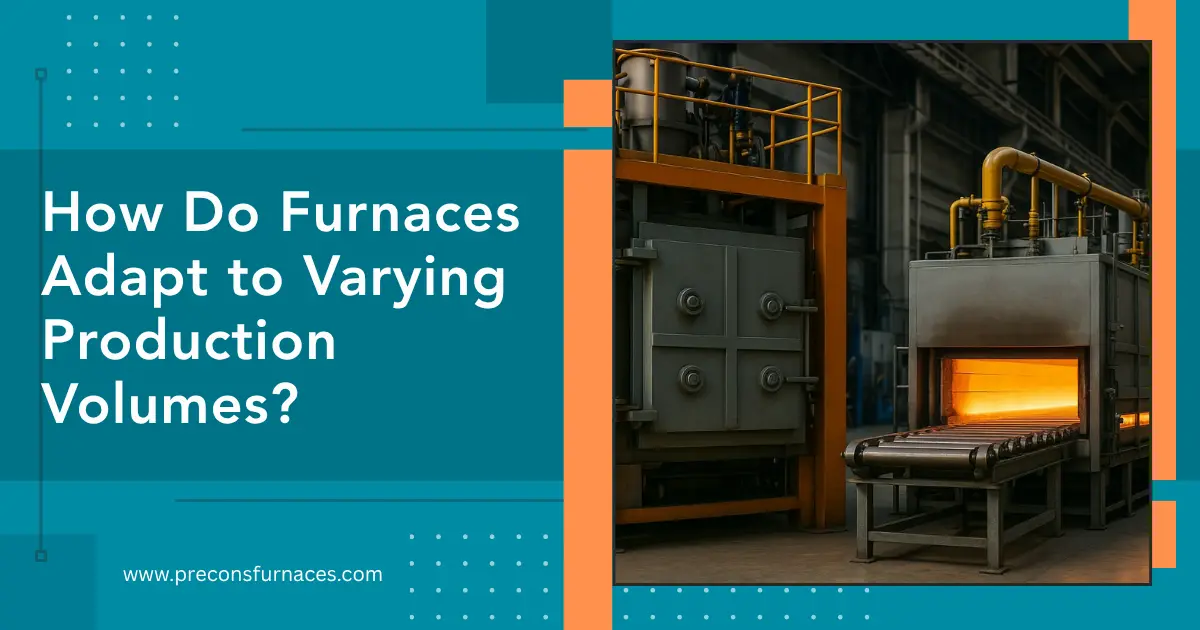
Manufacturing flexibility has become the ultimate competitive advantage in today’s dynamic market. One day you’re fulfilling a custom aerospace contract for 50 precision components; the next week you’re ramping up production for a 5,000-unit automotive order. The challenge? Finding furnace systems that excel at both extremes without sacrificing efficiency or quality.
Most traditional furnaces force manufacturers into an impossible choice: invest in equipment optimized for high-volume production (which wastes energy on small runs) or purchase batch systems (which can’t match mass production throughput). The solution lies in intelligent furnace configurations designed specifically for production flexibility.
Modular Furnace Architecture: The Game-Changer
Modular furnace designs represent a breakthrough innovation for manufacturers needing production flexibility. These systems feature interchangeable heating chambers, adjustable conveyors, and scalable automation that adapt to varying batch sizes without sacrificing performance.
Key advantages of modular configurations:
- Adjustable chamber sizing to match component dimensions and batch quantities
- Scalable heating capacity that matches actual production volume requirements
- Flexible automation integration from manual operation to full automation
- Interchangeable components enabling quick reconfiguration between production runs
Continuous Line Furnaces with Variable Feed Systems
Continuous line furnaces excel at high-volume production; however, modern designs now incorporate variable-speed conveyors and adjustable feed systems that dramatically improve small-batch economics.
Flexibility Features:
- Programmable speed controls allow single-part processing or bulk runs
- Selective chamber utilization using only active zones for small batches
- Reduced thermal mass in advanced designs, requiring less preheat energy for small quantities
- Multiple material handling options from simple fixtures to complex automation
For manufacturers with mixed production schedules, hybrid continuous-batch systems combine the efficiency of continuous heating with the flexibility of batch loading.
Multi-Chamber Systems: Maximum Adaptability
Multi-chamber configurations, featuring 2-4 independent heating zones, enable the simultaneous processing of different batch sizes or material types. This architecture delivers:
- Parallel processing capability maximizing facility throughput
- Independent temperature control for diverse material requirements
- Staggered operation cycles smooth production flow
- Maintenance flexibility keeps the operation running while servicing one chamber
Smart Control Systems: The Flexibility Enabler
The real secret to handling mixed production volumes is advanced process control technology. Modern computerized furnace management systems automatically optimize:
- Energy distribution based on chamber load
- Temperature profiles matching batch size requirements
- Cycle times adapting to production volume
- Maintenance scheduling preventing disruptions during critical production runs
Predictive analytics in next-generation systems forecast optimal configuration adjustments before production changes occur, enabling informed decisions.
Real-World Production Flexibility Example
Consider a precision metal components manufacturer requiring:
- Monday-Wednesday: 200-unit custom aerospace orders (small batches)
- Thursday-Friday: 2,000-unit automotive supplier runs (mass production)
Modular continuous line configuration enables:
- Small batch runs using partial chamber capacity and slower conveyor speeds
- Mass production using full chamber width and optimized conveyor velocity
- Same equipment, zero reconfiguration time, 30-40% energy savings versus dedicated systems
Evaluating Flexibility in Your Furnace Selection
When assessing furnace configurations for mixed production schedules, prioritize:
Scalability Metrics:
- Minimum to maximum batch size capability without major reconfiguration
- Energy consumption at partial load (critical for small batch economics)
- Automation integration ease for different production volumes
- Control system adaptability to varying process requirements
Investment Considerations:
- Total cost of ownership across varied production scenarios
- Payback period incorporating flexible production benefits
- Future expansion capability without complete replacement
The Strategic Advantage
Manufacturers with intelligent furnace configurations gain a profound competitive advantage: they can respond quickly to market opportunities, accommodate custom orders without compromising mass production economics, and maintain energy efficiency across all production scenarios.
Ready to achieve manufacturing flexibility without equipment compromise? Precons Furnaces specializes in custom modular and continuous line furnace configurations designed to meet today’s dynamic production demands. Our engineering team creates scalable solutions, handling everything from prototype runs to high-volume production.
Stop Choosing Between Production Flexibility and Operational Efficiency. Our furnace engineers will analyse your production patterns and recommend the ideal configuration that maximises throughput for both small and large batch operations, while optimising energy consumption.